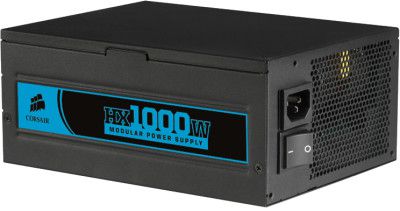- Qualcomm Launches Snapdragon 4 Gen 2 Mobile Platform
- AMD Launches Ryzen PRO 7000 Series Mobile & Desktop Platform
- Intel Launches Sleek Single-Slot Arc Pro A60 Workstation Graphics Card
- NVIDIA Announces Latest Ada Lovelace Additions: GeForce RTX 4060 Ti & RTX 4060
- Maxon Redshift With AMD Radeon GPU Rendering Support Now Available
Why We Don’t Review Memory & Power Supplies
At Techgage, we review products from many different categories, such as CPUs, GPUs, motherboards, chassis’, cooling and more. There are some products, though, that we haven’t taken a look at in quite a while, and to help clear things up, I’m posting our reasoning behind it all here. What pushed me to write this is that we’re constantly asked by companies to review their power supplies and memory, and being able to point them here rather than repeat myself over and over… well, it makes life easier.
First, the memory. Back in the DDR1 and even DDR2 days, memory was a ton of fun to benchmark and overclock, and in some cases, overclocking memory could actually deliver some noticeable differences in certain scenarios. Then DDR3 came out, and it became very apparent that we were at a point where neither timings nor frequencies mattered, at least in the enthusiast scheme of things.
I’m sure that there are some specific reasons for fast memory, but on the enthusiast side, I sure can’t see it (aside from CPU overclocking of course). As long as you have a kit with decent frequencies and timings, you should be fine. Over the course of the past two years, I’ve talked to numerous memory vendors about this predicament. To many, I simply asked, “In what scenario would an enthusiast see an improvement with faster memory?“. Not one could give me even a single scenario. That, my friends, is why we don’t review memory.
I’m not going to sit here and jump to conclusions, though, and it could be that there are scenarios where regular consumers and enthusiasts would see a real reason to opt for a faster kit of RAM, but as I mentioned, I’ve yet to find it. And in truth, if it’s that difficult to find one, how much does it really matter? This issue prompted me to start a thread a few months ago, so if you have any ideas for us, by all means post there and and let us know.

So what about power supplies? Unlike memory, I do believe that a higher-end power supply is better than a low-end, because when it comes to the health of your computer, you need stability and the assurance that your PC isn’t going to go up in smoke. But, the key reason we don’t review such products is primarily due to the fact that we don’t have a means to properly test them.
In order to properly test a power supply and its rated claims, you absolutely need an accurate way of testing, and simply tossing it into a PC and using a multi-meter to check for voltages is not how to do it. Rather, a full-blown stress-tester needs to be brought in, that’s capable of at least topping out the wattage abilities of the unit, because after all, readers should be able to know whether an 800W PSU can actually handle that kind of load. Given that most computers nowadays cannot surpass even 400W, it becomes clear why simple multi-meter testing isn’t enough.
In the future, should we come into contact with another proper load-tester and also find a reason to begin taking a look at memory again, we’ll consider it. But for now, we’ll continue to focus on components that we can both properly test, and also components that will actually make a real difference in your computing. Have any thoughts or questions? That’s what our related thread is for!
|
Discuss: Comment Thread
|




